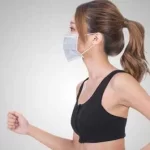
With the current COVID-19 pandemic sweeping the world, it has us all thinking about our immune system more than the average spring.
Should I take a Vitamin B6, C or E supplement? What about copper, zinc or selenium. Google tells me they’re all good supplements for the immune system.
I also took the question to OPEX coaches, and each of them had the same thing to say:
For most of us, the best way to ensure our body and immune system are functioning optimally is to pay close attention to the basics – the BLGs (basic lifestyle guidelines).
It’s certainly something OPEX CCP coach Daniel Jackson has been paying extra attention to with his clients in recent days.
“This has been an individual approach with each client, as coronavirus has been top of mind for most people. Fortunately, I am lucky to work with individuals who do not run into illness regularly,” he said. “(That said), I do, however have (some) clients who are immunocompromised and this has been something to navigate around through remote coaching and raising awareness around sanitization.”
Despite taking an individual approach, here are 5 tips Jackson and other OPEX coaches recommend as a general immune system boosting rules:
Sleep More
 “Sleep is always top of the list,” Jackson said.
“Sleep is always top of the list,” Jackson said.
CCP coach Nicole Zapoli, added: “My advice to clients to help prevent sickness would be to just make sure they are getting in enough quality sleep.”
You’ve heard it before, but it means, now more than ever, that prioritizing getting to bed at a time that allows you to get those 7 to 8 hours a a night is key to preventing sickness.
If you really want to geek out, check out this research about sleep and immune function.
Stress Less
Though you might be feeling anxious and stressed about the impact COVID-19 might have on your health, your loved ones health, your job, your ability to workout etc, this stress can take its toll on your immune system.
OPEX coach Ronel Velasquez, a Venezuelan currently living and coaching in Cambodia, explained what he does to reduce his stress during times like this: “Coming from a country with a deep economic, political and humanitarian crisis, I have experienced myself the power of a mindfulness routine (and) breathing exercises,” he said. “The virus is certainly real, but (what) we build in our heads (can be) much worse.”
Keeping yourself calm emotionally “contributes to maintaining a parasympathetic state and, in general, reducing stress,” he added.
Zapoli, too, prioritizes the importance of reducing stress and anxiety, which is why she works with her individual program design clients to find ways that work for them to reduce stress throughout their day without reducing productivity.
“Things like taking short, fun little breaks throughout their day to get sunshine, fitness, social interaction, quiet time, reflection, meditation,” she said. “This can also increase better quality, more focused work sessions, as well as lowering stress and (building) a stronger immune system.”
OPEX coach Georgia Smith also takes stress seriously, and works with her clients to control stress levels with tools, such as meditation, journaling, breathing, scheduling time for enjoyable activities and “removing chronic stressors where possible, or helping them reframe them,” she said.
She added: “A simple example would be unplugging from email after hours and turning off notifications, plus making sure they have a strong support system and relationships, and helping them brainstorm ways to make new connections if (they don’t).”
Keep Moving
Regular exercise that includes aerobic and resistance training, “but not lactic training,” explained Smith, is another way of boosting your immune system.
“Aerobic work and resistance training are supported by research to bolster immune function, and, on the other hand, intense exercise is a stressor, and constant exposure to cortisol has a negative effect on immune function and overall health,” Smith added.
Bottom line: Keep moving without overdoing it.
As Valasquez explained, this isn’t necessarily about having to do high intensity training. Even just “mobilizing your blood,” he said, through regular movement, as opposed to sitting in a chair for eight hours a day, helps keep your body functioning optimally.
Drink More
Staying hydrated is another simple tip, as water helps carry oxygen to your cells to help your body function at its best. It also helps remove toxins from your body.
Smith and Zapoli recommend drinking half your body weight in pounds in ounces of water per day.
Read more here about best hydration practices here.
Eat Whole Foods
It goes without saying, diet affects your immune system.
“Eat plenty of colorful fruits and vegetables. Micronutrient deficiency can lower immune function,” offered Smith.
“Prepare meals at home, instead of eating out,” added Jackson.
“Eat simple whole foods, and limit the foods that are known allergens—gluten, legumes, dairy, etc,” offered Zapoli.
Final tip from Velasquez: “Maintain consistency with your BLGs and try to be proactive with what you can control so that all global hysteria does not affect your emotions.”
To learn how to effectively put these 5 steps into practice to help increase immune function and overall health and wellbeing, you need an individualized approach to exercise, behavior, and nutrition. Check out the free Coach’s Toolkit course from OPEX Fitness and learn the best method for personalized program design.
Read More





